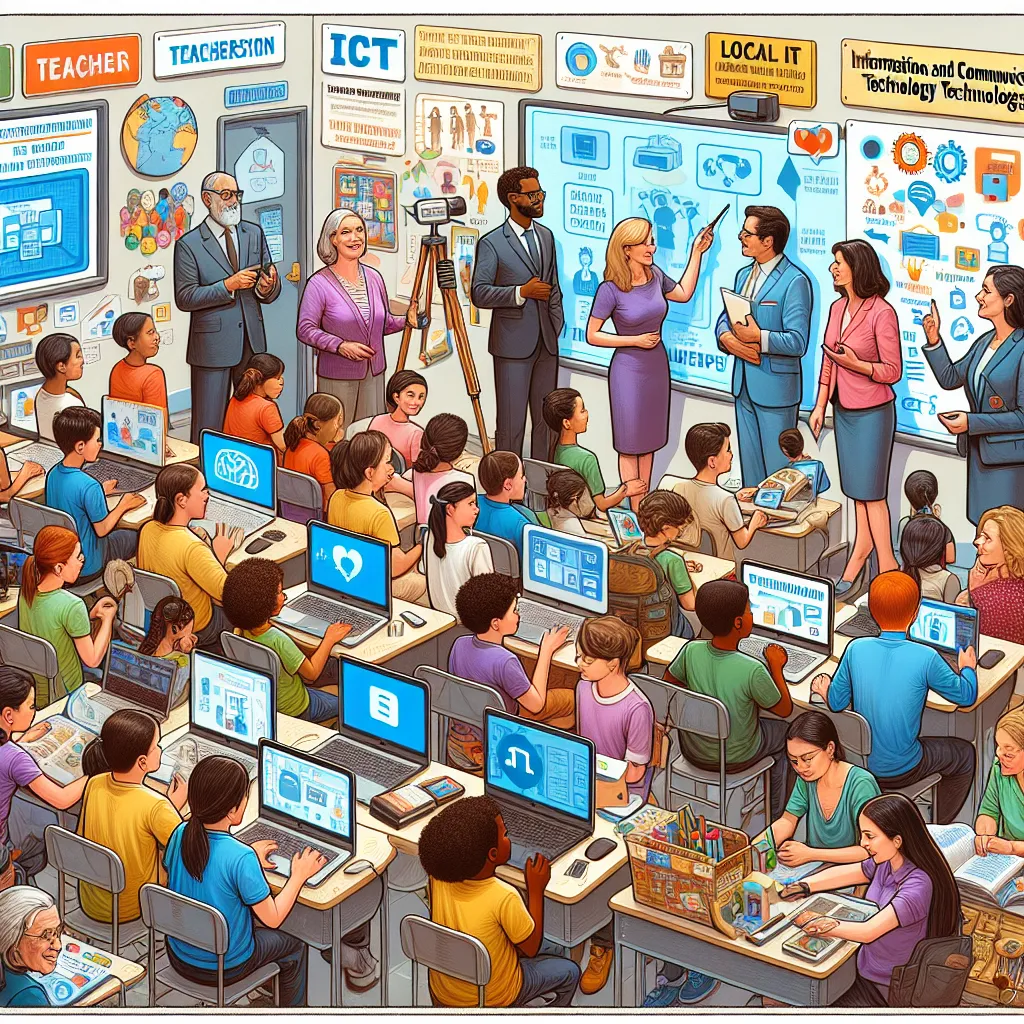Ask AI on The Internet
Question: Discuss the importance of continuous professional development for educators concerning ICT integration. Outline specific training and support mechanisms that can empower teachers to use ICTs effectively.
Continuous professional development (CPD) for educators is crucial for effective integration of Information and Communication Technology (ICT) in education. This ongoing process ensures that teachers stay updated with the latest technological advancements and pedagogical strategies, fostering an enriching learning environment for students. Here's why CPD is important and some specific training and support mechanisms that can empower teachers: ### Importance of CPD in ICT Integration: 1. **Enhanced Teaching Skills:** - **Technological Proficiency:** Regular training keeps educators proficient with new ICT tools and software, ensuring they can effectively incorporate technology into their teaching methods. - **Innovative Pedagogy:** Understanding how to blend traditional teaching methods with ICT innovations can enhance lesson plans and student engagement. 2. **Student Engagement and Achievement:** - **Interactive Learning:** ICT enables interactive and multimedia-rich educational experiences that can capture students' interest and cater to various learning styles. - **Accessibility:** ICT tools can provide tailored educational experiences for students with different needs, promoting inclusivity. 3. **Professional Competence:** - **Adaptability:** Continuous learning equips teachers to adapt to new educational demands and technological innovations. - **Confidence:** Ongoing development boosts teachers' confidence in using ICT, making them more likely to integrate these tools into their classrooms effectively. ### Training and Support Mechanisms: 1. **Workshops and Seminars:** - **Practical Training:** Hands-on workshops allow teachers to practice using ICT tools in a controlled environment, building familiarity and competence. - **Expert-Led Sessions:** Seminars led by ICT experts can provide insights into the latest trends and effective integration strategies. 2. **Online Courses and Webinars:** - **Flexible Learning:** Online courses and webinars offer flexibility, allowing teachers to learn at their own pace and revisit complex topics as needed. - **Wide Range of Topics:** These can cover various aspects of ICT, from basic tool usage to advanced applications in specific subjects. 3. **Peer Collaboration:** - **Professional Learning Communities (PLCs):** Regular meetings where teachers can share experiences, challenges, and solutions regarding ICT use. - **Mentorship Programs:** Pairing less experienced teachers with ICT-savvy mentors for personalized guidance and support. 4. **Technical Support:** - **Help Desks:** Providing access to a dedicated help desk where teachers can get immediate assistance with technical issues. - **Ongoing IT Support:** Regular technical maintenance and troubleshooting services ensure that ICT tools remain functional and up-to-date. 5. **Resource Provision:** - **Access to Tools:** Ensuring that teachers have access to the necessary hardware and software, such as laptops, tablets, educational software, and reliable internet. - **Digital Content:** Providing a repository of digital lesson plans, interactive modules, and other resources that teachers can readily incorporate into their classes. 6. **Institutional Policies and Incentives:** - **Professional Development Credits:** Offering accreditation or credits for teachers who participate in ICT training programs. - **Recognition and Awards:** Implementing awards and recognition programs for teachers who demonstrate excellence and innovation in ICT integration. ### Conclusion: Continuous professional development in ICT integration empowers educators to harness the full potential of technology in the classroom, leading to improved teaching, enhanced student learning experiences, and greater overall educational outcomes. By providing structured training, robust support systems, and incentives, educational institutions can foster a culture of continuous improvement and innovation among teachers.
Think your answer is better than the AI's? Post it below.
Other Most Relevant Posts:
 1. Enhancing Educators Through Continuous ICT Development
2. Partnerships Enhancing ICT Support in South African Schools
3. Successful ICT Implementation in South African Schools
4. Steps to Enha
1. Enhancing Educators Through Continuous ICT Development
2. Partnerships Enhancing ICT Support in South African Schools
3. Successful ICT Implementation in South African Schools
4. Steps to Enha
Question Tags
If you want your question answered by an AI, click here.






Post your own comment: